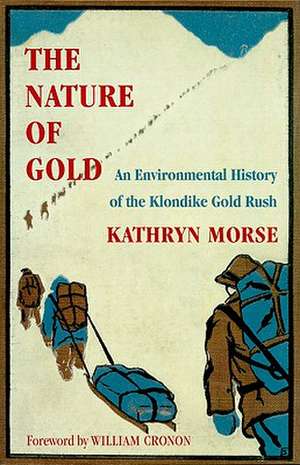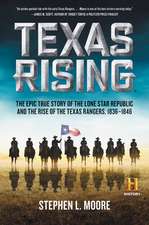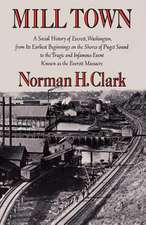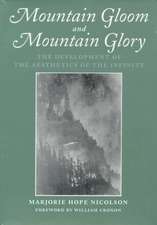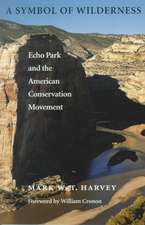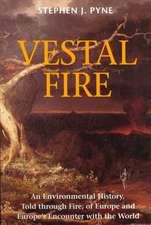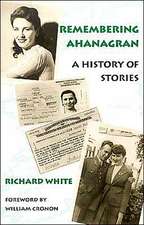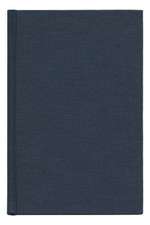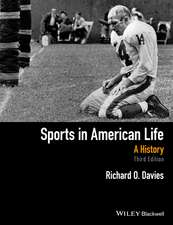The Nature of Gold – An Environmental History of the Klondike Gold Rush: Weyerhaeuser Environmental Books
Autor Kathryn Morse, William Crononen Limba Engleză Paperback – 10 feb 2010
Din seria Weyerhaeuser Environmental Books
-
 Preț: 200.37 lei
Preț: 200.37 lei -
 Preț: 182.30 lei
Preț: 182.30 lei -
 Preț: 200.91 lei
Preț: 200.91 lei -
 Preț: 148.45 lei
Preț: 148.45 lei -
 Preț: 200.66 lei
Preț: 200.66 lei -
 Preț: 200.76 lei
Preț: 200.76 lei -
 Preț: 237.45 lei
Preț: 237.45 lei -
 Preț: 284.21 lei
Preț: 284.21 lei -
 Preț: 233.76 lei
Preț: 233.76 lei -
 Preț: 235.34 lei
Preț: 235.34 lei -
 Preț: 232.45 lei
Preț: 232.45 lei -
 Preț: 228.59 lei
Preț: 228.59 lei -
 Preț: 239.75 lei
Preț: 239.75 lei -
 Preț: 228.96 lei
Preț: 228.96 lei -
 Preț: 224.72 lei
Preț: 224.72 lei -
 Preț: 227.62 lei
Preț: 227.62 lei -
 Preț: 233.37 lei
Preț: 233.37 lei - 23%
 Preț: 651.12 lei
Preț: 651.12 lei -
 Preț: 225.71 lei
Preț: 225.71 lei -
 Preț: 227.62 lei
Preț: 227.62 lei -
 Preț: 235.34 lei
Preț: 235.34 lei -
 Preț: 239.16 lei
Preț: 239.16 lei -
 Preț: 232.45 lei
Preț: 232.45 lei -
 Preț: 232.23 lei
Preț: 232.23 lei -
 Preț: 226.67 lei
Preț: 226.67 lei -
 Preț: 234.73 lei
Preț: 234.73 lei -
 Preț: 229.55 lei
Preț: 229.55 lei -
 Preț: 219.46 lei
Preț: 219.46 lei -
 Preț: 218.62 lei
Preț: 218.62 lei -
 Preț: 439.38 lei
Preț: 439.38 lei
Preț: 231.46 lei
Nou
Puncte Express: 347
Preț estimativ în valută:
44.30€ • 46.07$ • 36.57£
44.30€ • 46.07$ • 36.57£
Carte tipărită la comandă
Livrare economică 15-29 aprilie
Preluare comenzi: 021 569.72.76
Specificații
ISBN-13: 9780295983301
ISBN-10: 0295983302
Pagini: 304
Ilustrații: 52 illustrations, 7 maps
Dimensiuni: 152 x 229 x 15 mm
Greutate: 0.5 kg
Editura: MV – University of Washington Press
Seria Weyerhaeuser Environmental Books
ISBN-10: 0295983302
Pagini: 304
Ilustrații: 52 illustrations, 7 maps
Dimensiuni: 152 x 229 x 15 mm
Greutate: 0.5 kg
Editura: MV – University of Washington Press
Seria Weyerhaeuser Environmental Books
Recenzii
Morse demonstrates the dramatic environmental damage created by the gold rush, but she also helps us understand the very real accommodations that miners had to make if they hoped to survive in these far northern landscapes. . . . She is a superb storyteller with a wry sense of humor, a flair for the quirky detail and the revealing anecdote, and a keen appreciation for the tragicomic underside of this famous event. from the Foreword by William Cronon"This environmental history of a gold rush is as surprising, revealing, and complicated as gold itself. I know of nothing quite like this wry and clever book." Richard White"If you're only allowed one book about the Klondike Gold Rush, I suppose it has to be Jack London. But this volume definitely comes next -- a wonderfully compelling account of what it actually felt like to pack up and head to the Yukon. Scholars will find it provocative and deep, but all readers will find it absorbing, touching, funny -- a truly revealing window on our national history and our national character." William McKibben"The Nature of Gold follows environmental history's prescription to examine how people know nature through labor. But this is no myopic study of gold seekers trudging up Chilkoot Pass and then lighting the fires that thawed the frozen earth for mining. Kathryn Morse recognizes how profoundly the economic and political culture of the 1890s shaped the rush for gold in Alaska and the Yukon. And she details the varieties of interconnected human and animal labor that sustained the Klondike rush, from the Native peoples who hauled supplies over the pass, to the woodcutters who provided the fuel for steamboats, to the packhorses and sled dogs who moved gods from place to place, to the local fishers and hunters and distant farmhands and meatpackers who kept the miners and their beasts fed. The Nature of Gold effectively and seamlessly blends both older and newer environmental history methodologies, and does so in an eminently accessible and compelling prose style." Susan Lee Johnson, University of Wisconsin-Madison"The Nature of Gold is a tour de force of modern scholarship. It takes on special significance because few theoretical analyses of northern settlement, particularly in Alaska, have yet been written, and the Klondike gold rush is one of the first historical events newcomers to the field find themselves drawn to. This work will give them just the introduction they need to construct a meaningful understanding of northern history." Pacific Northwest Quarterly
"Morse demonstrates the dramatic environmental damage created by the gold rush, but she also helps us understand the very real accommodations that miners had to make if they hoped to survive in these far northern landscapes... She is a superb storyteller with a wry sense of humor, a flair for the quirky detail and the revealing anecdote, and a keen appreciation for the tragicomic underside of this famous event." from the Foreword by William Cronon "This environmental history of a gold rush is as surprising, revealing, and complicated as gold itself. I know of nothing quite like this wry and clever book." Richard White "If you're only allowed one book about the Klondike Gold Rush, I suppose it has to be Jack London. But this volume definitely comes next -- a wonderfully compelling account of what it actually felt like to pack up and head to the Yukon. Scholars will find it provocative and deep, but all readers will find it absorbing, touching, funny -- a truly revealing window on our national history and our national character." William McKibben "The Nature of Gold follows environmental history's prescription to examine how people know nature through labor. But this is no myopic study of gold seekers trudging up Chilkoot Pass and then lighting the fires that thawed the frozen earth for mining. Kathryn Morse recognizes how profoundly the economic and political culture of the 1890s shaped the rush for gold in Alaska and the Yukon. And she details the varieties of interconnected human and animal labor that sustained the Klondike rush, from the Native peoples who hauled supplies over the pass, to the woodcutters who provided the fuel for steamboats, to the packhorses and sled dogs who moved gods from place to place, to the local fishers and hunters and distant farmhands and meatpackers who kept the miners and their beasts fed. The Nature of Gold effectively and seamlessly blends both older and newer environmental history methodologies, and does so in an eminently accessible and compelling prose style." Susan Lee Johnson, University of Wisconsin-Madison "The Nature of Gold is a tour de force of modern scholarship. It takes on special significance because few theoretical analyses of northern settlement, particularly in Alaska, have yet been written, and the Klondike gold rush is one of the first historical events newcomers to the field find themselves drawn to. This work will give them just the introduction they need to construct a meaningful understanding of northern history." Pacific Northwest Quarterly
"Morse demonstrates the dramatic environmental damage created by the gold rush, but she also helps us understand the very real accommodations that miners had to make if they hoped to survive in these far northern landscapes... She is a superb storyteller with a wry sense of humor, a flair for the quirky detail and the revealing anecdote, and a keen appreciation for the tragicomic underside of this famous event." from the Foreword by William Cronon "This environmental history of a gold rush is as surprising, revealing, and complicated as gold itself. I know of nothing quite like this wry and clever book." Richard White "If you're only allowed one book about the Klondike Gold Rush, I suppose it has to be Jack London. But this volume definitely comes next -- a wonderfully compelling account of what it actually felt like to pack up and head to the Yukon. Scholars will find it provocative and deep, but all readers will find it absorbing, touching, funny -- a truly revealing window on our national history and our national character." William McKibben "The Nature of Gold follows environmental history's prescription to examine how people know nature through labor. But this is no myopic study of gold seekers trudging up Chilkoot Pass and then lighting the fires that thawed the frozen earth for mining. Kathryn Morse recognizes how profoundly the economic and political culture of the 1890s shaped the rush for gold in Alaska and the Yukon. And she details the varieties of interconnected human and animal labor that sustained the Klondike rush, from the Native peoples who hauled supplies over the pass, to the woodcutters who provided the fuel for steamboats, to the packhorses and sled dogs who moved gods from place to place, to the local fishers and hunters and distant farmhands and meatpackers who kept the miners and their beasts fed. The Nature of Gold effectively and seamlessly blends both older and newer environmental history methodologies, and does so in an eminently accessible and compelling prose style." Susan Lee Johnson, University of Wisconsin-Madison "The Nature of Gold is a tour de force of modern scholarship. It takes on special significance because few theoretical analyses of northern settlement, particularly in Alaska, have yet been written, and the Klondike gold rush is one of the first historical events newcomers to the field find themselves drawn to. This work will give them just the introduction they need to construct a meaningful understanding of northern history." Pacific Northwest Quarterly
Notă biografică
Cuprins
Foreword by William Cronon
Acknowledgments
Introduction: On the Chilkoot
1/The Culture of Gold
2/The Nature of the Journey
3/The Culture of the Journey
4/The Nature of Gold Mining
5/The Culture of Gold Mining
6/The Nature & Culture of Food
7/The Nature & Culture of Seattle
Conclusion: Nature, Culture, and Value
Notes
Selected Bibliography
Index
Descriere
The first environmental history of the Alaska/Yukon gold rush
